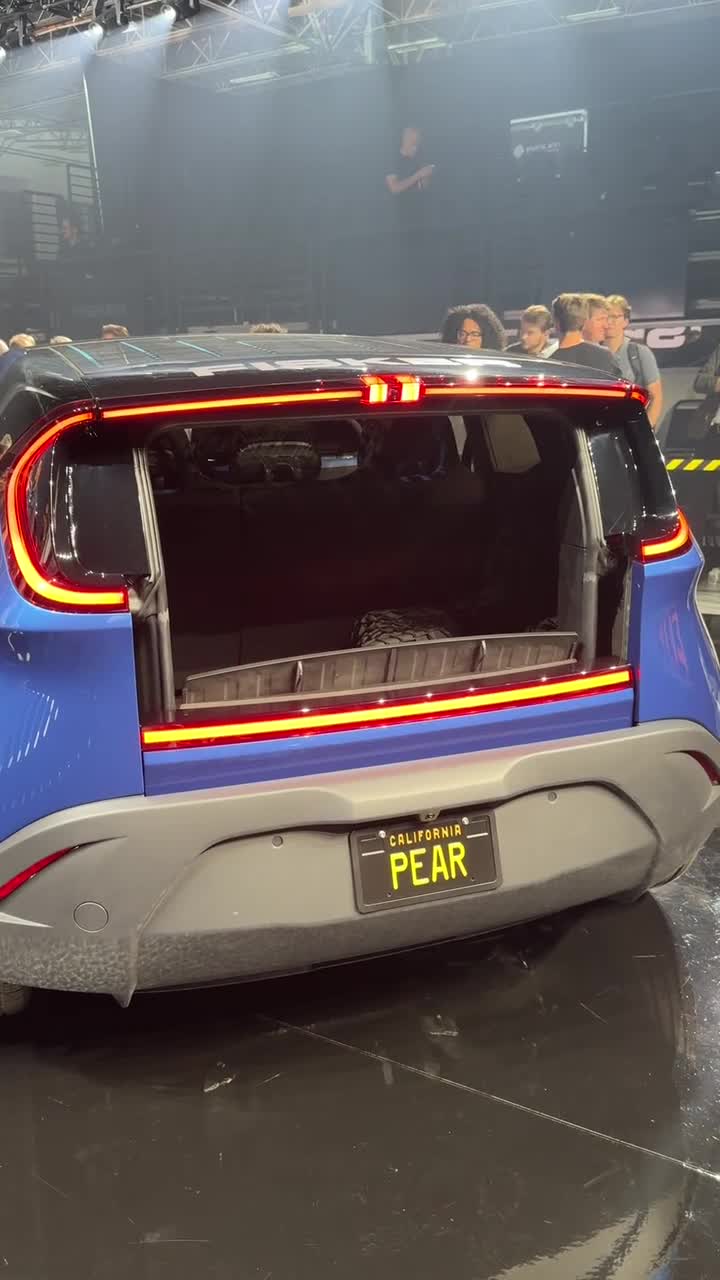Fisker Unveils Future Plans for Rōnin, Pear, and Alaska Pickup

California EV startup Fisker has just revealed three new models, claiming that its lineup will expand to include four vehicles by the end of 2025. The plan includes a four-door convertible called Rōnin, an affordable crossover called the Pear, and a pickup truck called the Alaska, all of which will be sold alongside the existing Ocean SUV.
Henrik Fisker, the company’s CEO and lead designer, wants to scale up to building 1 million cars per year. A portfolio of unique-looking and cleverly engineered vehicles is how he believes the company achieve that goal.
We’ve seen teasers for Rōnin and Pear already, but the big surprise was confirmation of the rumored pickup truck, which will be called Alaska. The trio were just shown in concept form at the company’s Product Vision Day event. While their designs could evolve by the time they see production, each one features novel details and sustainable materials.
Fisker’s first SUV Makes a Splash
Pear: EV on a Budget
Drew Dorian|Car and Driver
The Pear promises a starting price of less than $30,000. This subcompact crossover isn’t much smaller than the Ocean, but it’s been stripped down and will be built on a new lightweight, low-cost platform.
Fisker says that it represents a 35-percent reduction in parts versus traditional manufacturing. In practice, that should amount to a fairly basic package, but a glimpse inside the Pear at the event provided assurances that it’ll still deliver on style. A six-seat interior layout will be available, which swaps the two front bucket seats for a three-across bench. We spotted attractive cloth upholstery and a two-tone dashboard design with bright blue accent coloring.
In front, Fisker has designed a novel drawer-style front trunk; around back, in lieu of a traditional SUV liftgate, you’ll find a motorized retractable panel which drops entirely out of the way behind the rear bumper.

The company’s plan is to build the Pear in Ohio at Foxconn’s Lordstown assembly plant, which would make it eligible for federal tax incentives. Start of production is said to be targeted around mid-2025, but the company’s leader told Car and Driver that there is still a lot to finalize before the SUV is ready for prime time.
Rōnin: Flagship Hypercar

Drew Dorian|Car and Driver
Looking a bit like a reborn Karma—Fisker’s first attempt at an eco-friendly luxury car back in 2012—the Rōnin features a carbon-fiber hardtop roof and four butterfly-style doors. Fisker says 60 mph should arrive in 2.0 seconds thanks to three electric motors providing 1000 horsepower and standard all-wheel drive; the car’s battery pack is said to offer a claimed 600-mile driving range.

Drew Dorian|Car and Driver
Its positioning at the top of the Fisker lineup leaves plenty of space between the Rōnin and the Ocean, as it’ll surely command a six-figure price tag when it goes on sale. Timing for that, by the way, is likely to be a few years away.
Alaska: An Ocean with a Truck Bed

Drew Dorian|Car and Driver
Surprisingly, the Alaska pickup truck looks to be the most production-ready of the three new models. Based on the Ocean, the Alaska has a pickup truck bed behind the cabin and a drop-down midgate that extends the bed into the cabin. Reminiscent of the long-dead Chevy Avalanche (and the new Silverado EV), this feature allows the Alaska to remain compact in size but offer the ability to haul larger cargo.
The Alaska’s claimed range is lower than the Ocean’s, but Fisker said to expect at least 230 miles per charge in the base version, with more expensive longer-range versions promising up to 340 miles. Pricing is said to start at $45,400 for the Alaska, and although the company isn’t discussing production location yet, it did confirm to C/D that it will be U.S.-built. We’d expect the Alaska to hit production before the Pear, and Fisker himself said during the event that it could go on sale as early as December 2024.
Fisker will also build a production version of the Ocean Force E concept, which will exist as an option package for the Ocean SUV. The Force E will come decked out with off-road equipment, including more aggressive all-terrain tires, bulged fenders, and a roof-top cargo box.
What’s Next?
Is Fisker’s latest plan too ambitious? Given that it faced delays getting the Ocean SUV to market, it’s certainly possible that things won’t pan out exactly as planned or on the timeline Fisker is claiming. A somewhat scattered and unknown production plan is another hurdle. Despite those doubts, the company isn’t short of consumers raising their hands for one of its future EVs. Reservation holders number in the tens of thousands, and deposits for all three of the concepts shown at the event are already trickling in.

Managing Editor, Buyer’s Guide
Drew Dorian is a lifelong car enthusiast who has also held a wide variety of consumer-focused positions throughout his career, ranging from financial counselor to auto salesperson. He has dreamed of becoming a Car and Driver editor since he was 11 years old—a dream that was realized when he joined the staff in April 2016. He’s a born-and-raised Michigander and learned to drive on a 1988 Pontiac Grand Am. His automotive interests run the gamut from convertibles and camper vans to sports cars and luxury SUVs.



